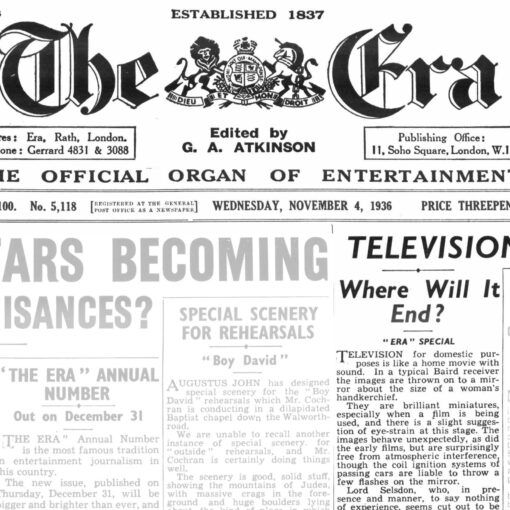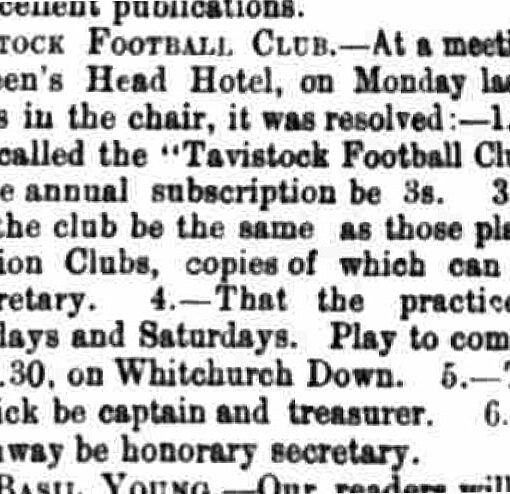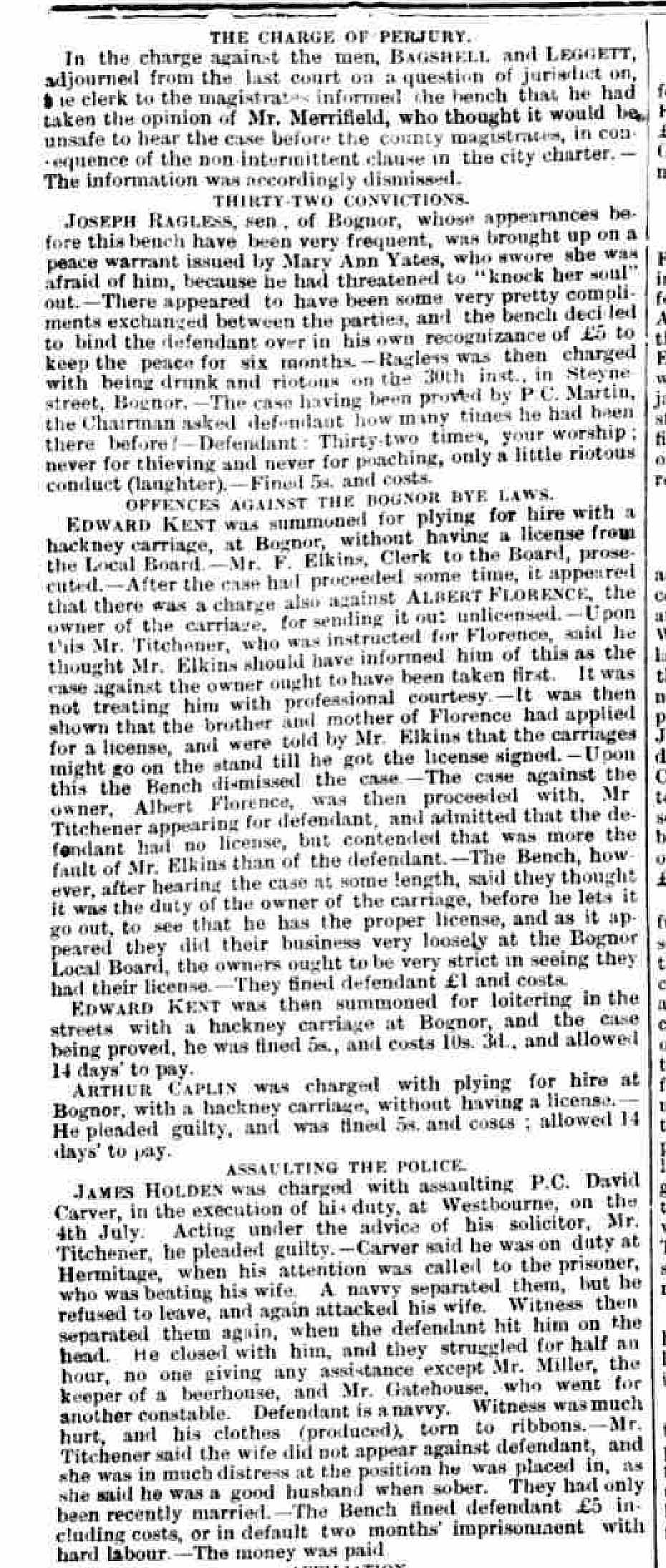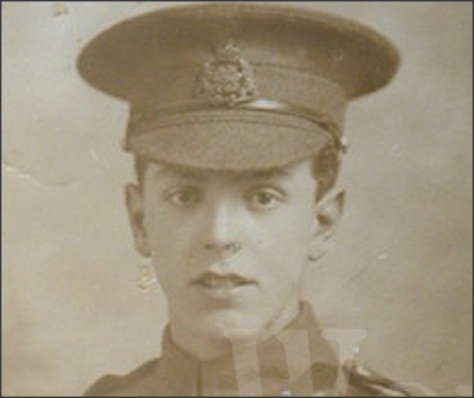Gloucester Journal – Saturday 23 August 1862

FORGERY.
Herbert Cresswell, a young man, was charged with obtaining money by means of a forged instrument, on the 31st of March, at Cheltenham. The prisoner pleaded guilty.
Mr. Sawyer, who appeared for the prisoner, said he could not struggle against a verdict of guilty. It appeared that he had yielded in an unhappy moment to temptation, and made use of the forged instrument. But it appeared that up to that time he had been an honest youth, and had borne an excellent character. He should call a number of witnesses who would testify to the good character borne by the prisoner, in the hope that his lordship might deal leniently with him.
The learned judge said it was quite plain upon the evidence that the prisoner was guilty of the charge against him, and as it appeared from the witnesses who had been called that he had borne a good character, he was sorry that he had forfeited that character. The offence he had committed was a serious one, and he could not pass upon him a milder sentence than four months’ imprisonment.
Detailed Explanation:
This excerpt from the Gloucester Journal on Saturday, 23 August 1862, details a legal case involving a young man named Herbert Cresswell. He was charged with and admitted guilt to the crime of forgery, specifically obtaining money using a forged document on 31 March in Cheltenham.
- Court Proceedings:
- The defence, represented by Mr. Sawyer, acknowledged the defendant’s guilt, citing that Cresswell acted in a moment of weakness and succumbed to temptation. Mr. Sawyer highlighted that Cresswell’s prior history was exemplary; he was described as an “honest youth” with a strong reputation for good character.
- To support leniency, the defence proposed calling witnesses to vouch for Cresswell’s good character. This was an appeal for mercy based on his previously unblemished record.
- Judge’s Response:
- The judge unequivocally accepted the evidence of guilt but expressed regret that such a previously upstanding individual had tarnished his good character through a serious offence.
- Despite the plea for leniency, the judge emphasised the severity of forgery as a crime, noting its implications for trust and integrity in society.
- Consequently, the judge imposed a sentence of four months’ imprisonment, which he framed as the minimum appropriate punishment given the circumstances.
Context and Significance:
This case reflects the societal and judicial attitudes of mid-19th-century Britain towards crime and punishment. Forgery was regarded as a serious offence because it undermined trust in financial and legal systems. However, the court also valued an individual’s prior good character, which could influence sentencing.
In this instance, Herbert Cresswell’s prior reputation did not absolve him of guilt but likely helped in securing a relatively mild sentence for forgery—a crime that could attract much harsher penalties, including transportation or prolonged imprisonment, during that era. The judge’s remarks reflect a balance between upholding justice and acknowledging mitigating factors like prior character and apparent remorse.
The value of British newspaper research, particularly with access to free services like Old British News, is immense for family historians. Here’s a detailed look at how these resources, including the Herbert Cresswell article, aid in uncovering and enriching family histories:
1. Access to Unique Historical Details
Newspapers provide narrative-rich details that are not found in official records, such as:
- Events and Actions: The article about Herbert Cresswell outlines the specific charge (forgery), the location (Cheltenham), and the date (31st March), which can be cross-referenced with other records.
- Character and Reputation: Descriptions such as “honest youth” or mentions of witnesses speaking to Cresswell’s “good character” reveal personal traits and the community’s perception of an individual.
- Consequences: The article outlines the judgment, giving family historians insight into how ancestors were affected by their actions.
Such details are invaluable in humanising ancestors and understanding the complexities of their lives.
2. Complimentary Access through Old British News
Old British News, as a free research service, removes barriers to accessing historical newspapers by:
- Locating Relevant Articles: Instead of sifting through archives yourself, you can request targeted searches for articles from 1750 to 1950, based on names, events, or locations related to your ancestors.
- Cost-Free Service: Many online newspaper archives require expensive subscriptions, which can be prohibitive for hobbyists. Old British News offers its research at no charge, ensuring accessibility for all.
- Personalised Results: Researchers can tailor requests to specific topics or regions, such as Gloucestershire for the Cresswell case, ensuring precise and meaningful results.
This free service is particularly helpful for family historians working on a budget or those new to genealogical research.
3. Identifying Relatives and Associates
Newspaper articles often mention people connected to your ancestor, providing leads that might not be evident in other records:
- Witnesses and Associates: The Cresswell article mentions witnesses who testified to his good character. These witnesses could be relatives, neighbours, or community members, offering clues about the social network of the family.
- Legal Representation: References to individuals like “Mr. Sawyer” (the lawyer) could lead to additional local records or connections.
- Geographical Clues: Locations like Cheltenham provide context for family movements or roots.
Through Old British News, you can explore related articles that mention the same individuals or areas, deepening your research.
4. Understanding Social and Historical Context
Family historians can gain valuable insights into the environment their ancestors lived in:
- Legal and Social Attitudes: The Cresswell case illustrates 19th-century views on crime, morality, and the importance of good character.
- Community Life: Newspapers often reflect the societal norms, economic conditions, and local events of the time, helping you better understand your ancestor’s world.
- Impact of Scandals: Articles like this show how criminal actions could impact a family’s reputation or social standing.
Old British News allows researchers to uncover similar articles that shed light on broader community or societal trends, complementing individual stories.
5. Complementing Other Records
Newspaper articles can corroborate or expand upon information from other historical records:
- Court and Prison Records: The Herbert Cresswell article provides enough detail to locate additional records, such as trial transcripts or prison registers, which might reveal more about his life.
- Census Records: The mention of his age as a “young man” helps narrow down potential birth records or census entries, which could trace his family and life before or after the incident.
- Family Dynamics: The reference to “good character” could suggest strong family values, hinting at a stable upbringing.
Using Old British News, researchers can uncover complementary articles on family members or other events that shaped their lives.
6. Tracking Migration and Family Movement
Newspaper reports can help trace the geographical movements of ancestors:
- Locations of Crimes or Events: Cresswell’s case ties him to Cheltenham in 1862. Family historians can use this information to identify migration patterns or local connections.
- Impact of Punishments: Sentences such as Cresswell’s four-month imprisonment might have influenced later decisions, such as moving to start anew. Old British News could locate follow-up articles that detail post-sentence developments.
7. Unearthing Family Stories
While official records provide vital statistics, newspapers reveal personal stories that add depth and nuance to a family tree. Scandals, criminal cases, and even positive mentions highlight the real lives of ancestors, showcasing their triumphs, struggles, and humanity.
The free service from Old British News makes this process easier and more accessible by helping family historians uncover stories they might never have found otherwise.
8. Highlighting Broader Family Dynamics
The Cresswell article, for instance, could inspire questions about family influence:
- Did Herbert’s act of forgery stem from financial hardship or personal pressure?
- How did this incident affect his family’s reputation or his own life afterwards?
Articles from Old British News could reveal more about his family, such as siblings who supported him, or even further mentions of Cresswell himself.
Free to use British Newspaper Research Service
British newspapers offer a treasure trove of information for family historians. They capture moments in time, providing context, character, and community insight that official records cannot. With the free service provided by Old British News, this research becomes even more accessible, enabling historians to delve into rich, untold stories of their ancestors, like the case of Herbert Cresswell. By combining these resources with other records, family historians can create a more complete and engaging picture of the past.
I search historical articles to locate mentions of your ancestors—whether they were involved in notable events or simply part of the everyday life reported in these newspapers. If relevant articles are found, I deliver them to you in a PDF format at no cost.
If I find articles, they’ll be sent to you in a clear, organized PDF. If not, you’ll be informed right away. See here.




